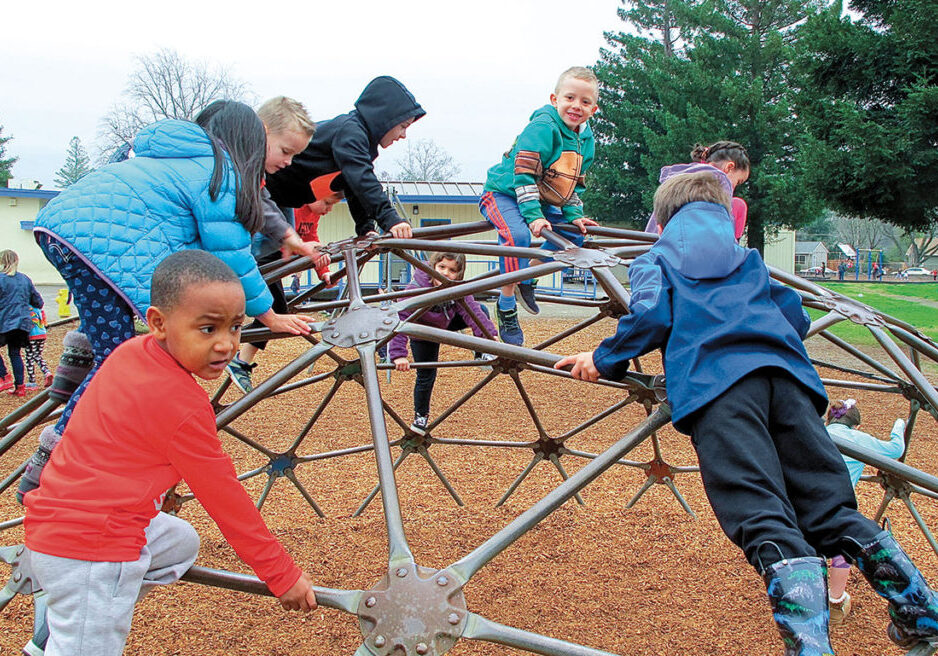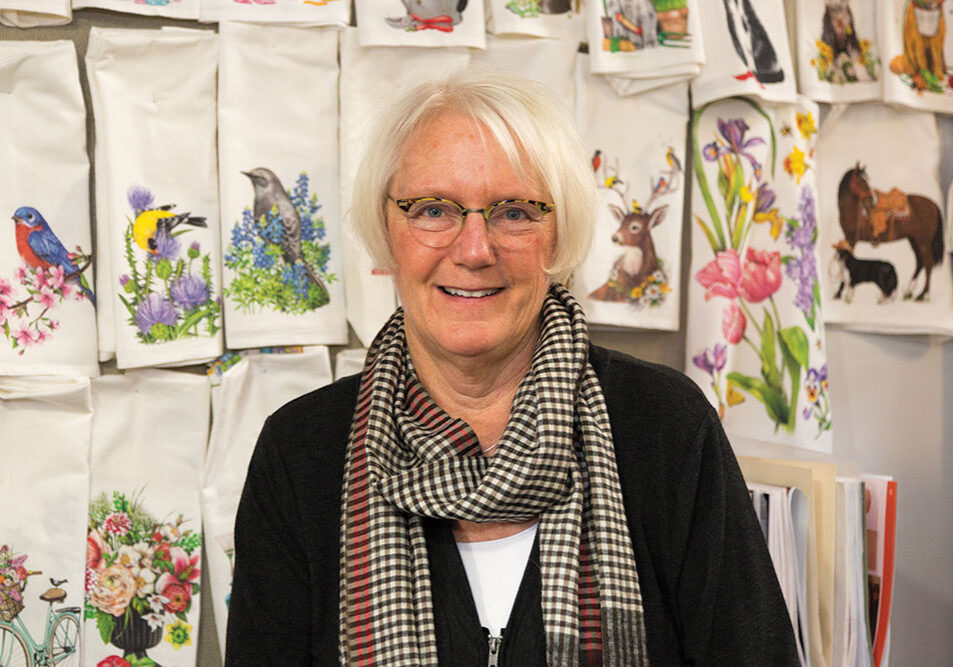I grew up in a mixed faith household, and as such, I celebrated a little bit of everything with different people. The older I got, the more curious I became about the origins of the traditions I shared with my relatives. And as I grew and met new people, I learned about the fascinating differences in these traditions across distance and denomination. As I welcome a new holiday season with an open heart, I wanted to share a bit about the rich diversity this time of year has to offer.
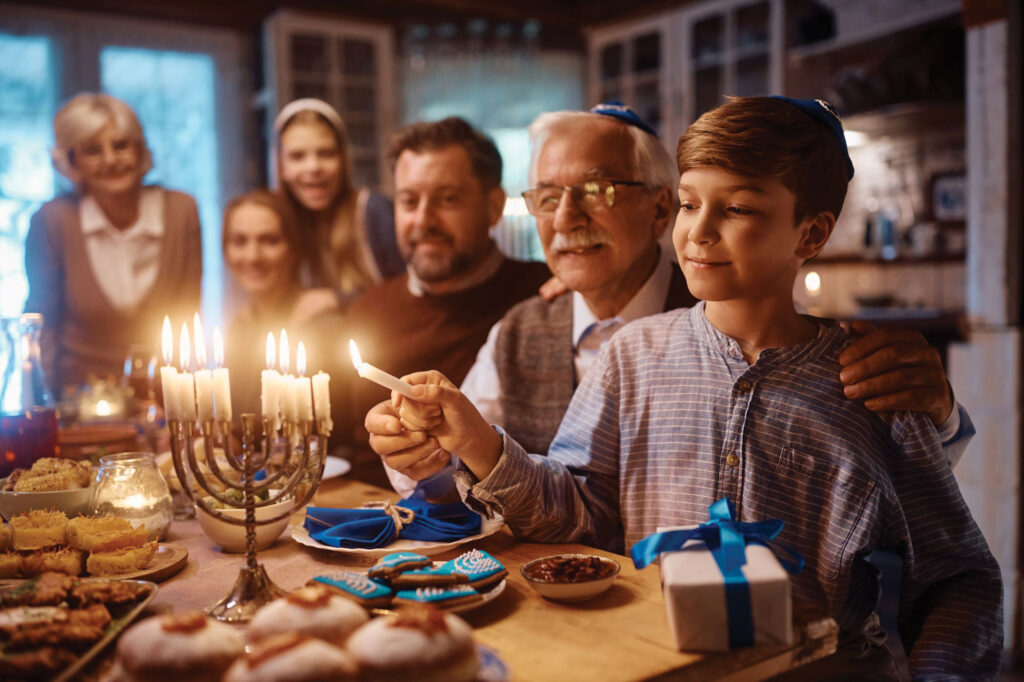

Hanukkah and the miracle of lights, symbolized by the eight candles of the menorah, is celebrated around the world.
Hanukkah
Hanukkah always begins on the 25th of Kislev, on the Jewish lunar calendar. On the solar calendar, it falls on December 7-15. The name Hanukkah comes from the word for dedication and refers to the rededication of the Jerusalem temple. Judah Maccabee led a small band of rebels in 165 CE, retaking the temple from imperial rule. Once the religious space was purified and rededicated, it was decided that each year on that date, the victory should be celebrated. It’s said that, during the siege, the one remaining flask of ritually pure oil was only enough to last for one night, but it continued to burn and give light for 8 days, until more oil could be provided. This miracle is the inspiration for the Hanukkiah ritual of lighting the Menorah that is practiced to this day.
Eating foods fried in oil is an important part of celebrating the oil which lasted for eight days, but what you consume depends on your local custom.
In Romania, Greece and Turkey, for instance, they make their latkes out of leeks, instead of potatoes. In North Africa, the Middle East and the Mediterranean, it’s common to make latkes with ricotta or similar cheeses, and Latin America replaces the latkes altogether, opting for fried plantains in their place. In Uzbekistan, it’s traditional to eat fried dumplings stuffed with walnuts. And in India, you’re more likely to find pakodas (crispy vegetable fritters), jalebis (sweet drip-batter treats) and samosas (savory, fried pastries) on your holiday table.
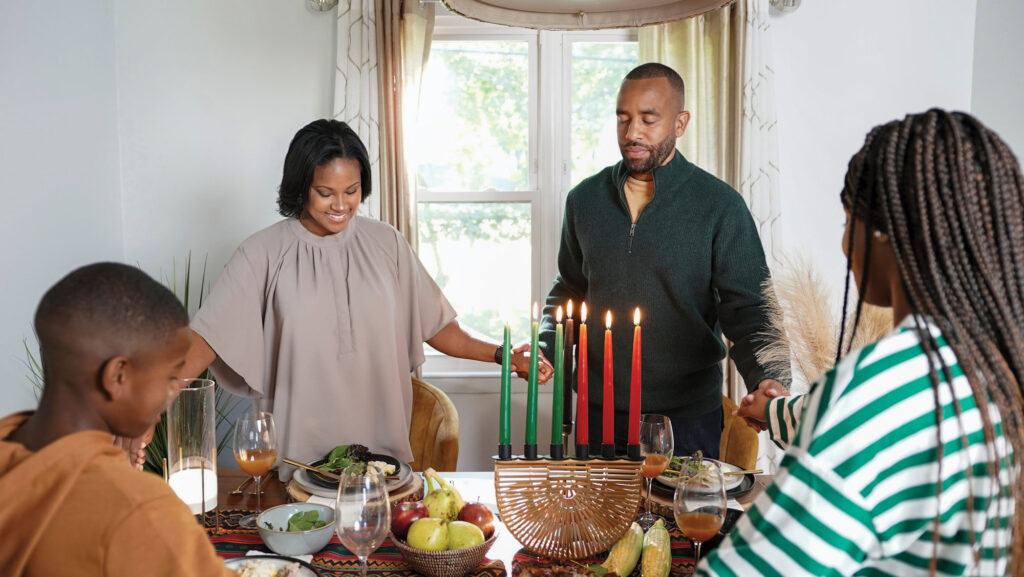

Kwanzaa
Most holidays celebrated in or around December are religious in nature, but Kwanzaa stands out as a primarily cultural one. Created in 1966, as an annual celebration of African-American culture, Kwanzaa was designed to celebrate a people ripped from their homeland and roots. This harvest festival extends from December 26 to January 1 and takes traditions from Southeast and West Africa. The name comes from the Swahili phrase “matunda ya kwanza” meaning “first fruit of the harvest.” The additional A was added to give this day a sacred number of letters.
Kwanzaa celebrates the seven principles: unity, self-determination, collective work and responsibility, cooperative economics, purpose, creativity and faith. The philosophy surrounding these principles is carried forward in the festivities as well as the discussions shared throughout the holiday.
Christmas around the world
Most people have a pretty good handle on Christmas customs in the US, whether they celebrate or not, from carols to pictures with Santa, lavish feasts to leaving out milk and cookies, and even that jolly little snitch, the elf on the shelf. But many other countries and cultures have their own spin on Christmas.
In the Philippine city of San Fernando they host Ligligan Parul, a lantern festival in honor of the holiday. Lanterns made of thousands of spinning lights brighten the night sky in tribute to the Star of Bethlehem. They kick off Christmas on the 16th , with nine days of masses leading up to the 25th. And the holiday supper is a massive affair, handled potluck style.
In Iceland, one fun custom involves inviting children to leave their shoes or boots by the window before bed. For the 13 days of Christmas, there will be a visitation by the 13 Christmas Lads. If you’ve been a good child, you’ll wake to find candy and sweets in your shoes. If you haven’t, it’s rotten potatoes for you.
In Ukraine, Christmas is usually celebrated on January 7th, and with it, there’s a bit of pageantry. People dress up in traditional garments and go out to carol, often coming home to kutya (a sweet, ceremonial grain dish).
While Christmas has many ways to celebrate, there are several affiliated holidays that many Christians across the world celebrate. Our Lady of Guadalupe Day is one such holiday with its own rich traditions. Celebrated on the 12th, this holiday represents two appearances of the Virgin Mary (the first on the 9th and the second on the 12th) to Juan Diego in 1531. Her revelation to this peasant in Mexico has become not only a day of feasts and faith, but an opportunity for many Catholics and Latinx peoples to rejoice in and connect through their cultural identity.
On this day, Mexico City fills with both locals and faithful foreigners, as they make their pilgrimage to the Basilica of Guadalupe, to see an image of the Virgen Morena. Festivities begin on the 11th, and Catholic churches across North and Central America host overnight masses. Countless parishioners come to pray, and children, often draped in traditional costumes, are given blessings.
If you’re looking to give back this holiday season, though, you don’t have to wait for one holiday or another. December is the National Month of Giving, and charity is more than the single act you do. It’s the seed that is planted and watered in the doing. As Redding minister Reverend Lynn Fitz says, “Oftentimes, community leaders or community volunteers, the people you see out there giving to community – [volunteering] started when they were children. It’s a model their parents set for them.”
If this season inspires you to give back, whether it’s bellringing, working in a soup kitchen or baking something for a neighbor in need, know that you’re nurturing the seed with your children that will bloom compassion in the future. Happy Holidays.
Posted in: Community
Comment Policy: All viewpoints are welcome, but comments should remain relevant. Personal attacks, profanity, and aggressive behavior are not allowed. No spam, advertising, or promoting of products/services. Please, only use your real name and limit the amount of links submitted in your comment.
You Might Also Like...

In Motion Fitness Embarks on Chico’s Most Ambitious Mural Art Project Ever
In Motion Fitness, a high profile local fitness center in Chico, California, is midway through what will ultimately be the largest outdoor mural art project in Chico history. The larger-than-life […]
First 5 Commissions: Raising the Bar for Early Childhood Development
Something monumental happened for families in California in 1998. With the passing of The Children and Families First Act (Proposition 10), First 5 California, also known as the California Children […]
Box Car Races in Yreka Offer A Fun Time For Kids And Their Dads
This year, the fastest moving vehicles at the Contemporary Historical Vehicle Association (CHVA) Father’s Day Car Show in Yreka will be made of cardboard boxes. These souped-up racing machines will […]
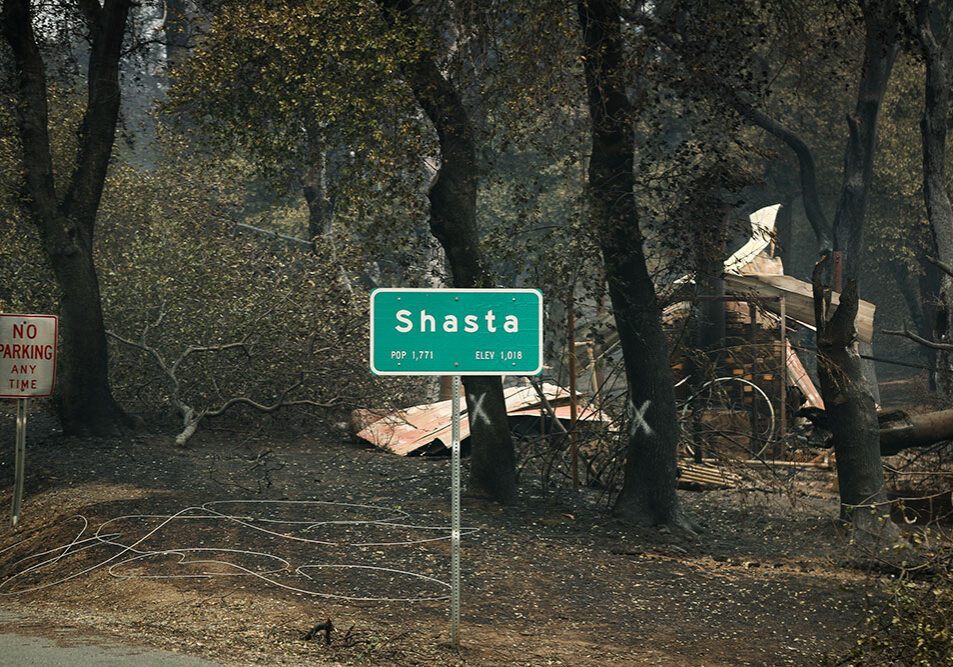
Carr Fire Victims Share Stories of Loss, Hope and Love
Personal Stories from The Carr Fire This summer the North State community was impacted by a series of fires that took thousands of homes and several lives. We spoke to […]


